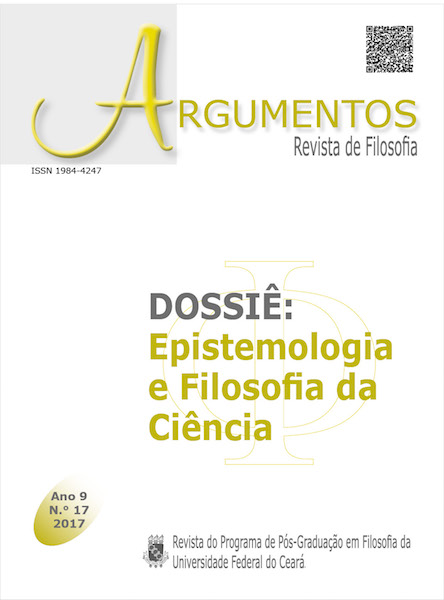On the logical formalization of theory change and scientific anomalies
Keywords:
Scientific anomalies. Neptune and Uranus. Dynamics of scientific theories. Nonmonotonic logic.Abstract
An investigation of what might be called the logical formalization of the process of theory change due to anomalies is presented. By anomaly we mean an observed fact falling into the explanatory scope of a theory that does not agree with the theory prevision. A classical approach to restore the explicative power of a theory faced with an anomaly is to propose new, tentative auxiliary hypotheses which, along with part of the old set of auxiliary hypotheses, are able to solve the anomaly. After laying down some conclusions about the structure of such process, we propose a multi-modal and nonmonotonic logical framework able to represent some key aspects of this important facet of the dynamics of scientific theories. Due to the necessity of accommodating incompatible tentative hypotheses, this framework incorporates a weak form of paraconsistency. As a case study, we analyze the anomalous behavior of the planet Uranus which threatened the Newtonian celestial mechanics for more than half a century and gave rise to the discovery of Neptune.Downloads
Published
Issue
Section
License
Argumentos magazine is licensed under an International Creative Commons Attribution License.
The Magazine uses CC BY inclusion
1) The authors retain the copyright granted to the magazine or the right to initial publication, with the work regularly licensed under the Creative Commons Attribution, which allows the sharing of the work with acknowledgment of authorship and initial publication in this magazine.
2) The authors are authorized to contract additional applicable contracts, for non-exclusive distribution of the version of the work published in this journal (for example, publication in the institutional repository or as a chapter of the book), recognition of authorship and initial publication in this journal.
3) Authors are authorized and encourage to publish and distribute their work online (for example, in institutional repositories or on their personal pages) at any time before or during the editorial process, as they can generate productive changes, as well as increase the impact and reference of published work.




.jpg)










._._3.png)
1.jpg)
._._._.png)
